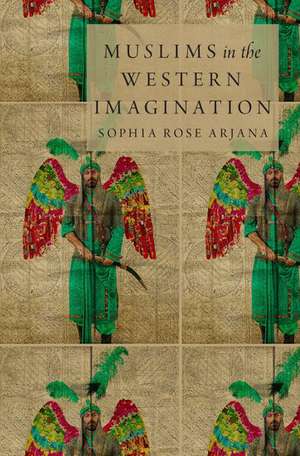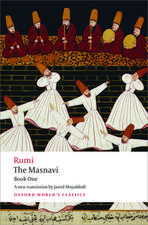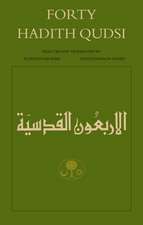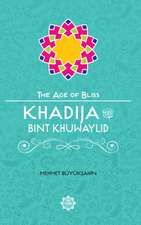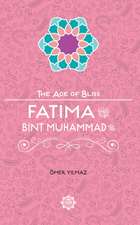Muslims in the Western Imagination
Autor Sophia Rose Arjanaen Limba Engleză Hardback – 19 feb 2015
Preț: 290.45 lei
Preț vechi: 328.34 lei
-12% Nou
Puncte Express: 436
Preț estimativ în valută:
55.59€ • 57.74$ • 46.17£
55.59€ • 57.74$ • 46.17£
Carte disponibilă
Livrare economică 01-07 ianuarie 25
Preluare comenzi: 021 569.72.76
Specificații
ISBN-13: 9780199324927
ISBN-10: 0199324921
Pagini: 280
Dimensiuni: 160 x 246 x 18 mm
Greutate: 0.5 kg
Editura: Oxford University Press
Colecția OUP USA
Locul publicării:New York, United States
ISBN-10: 0199324921
Pagini: 280
Dimensiuni: 160 x 246 x 18 mm
Greutate: 0.5 kg
Editura: Oxford University Press
Colecția OUP USA
Locul publicării:New York, United States
Recenzii
Arjana succeeds in supplying ample evidence that exposes a long history of the 'monsterization' and vilification of Muslims within the Western European and North American traditions of popular culture. Her concern for how these perpetuate mischaracterization of both Muslims and Islam and result in mistreatment, unfair exclusion, and outright injustice is well grounded and deserves serious attention, with expressed hope for correction.
Islamophobia is a broad pathology of our times. Pegged to September 11, 2001, it has continued to flourish in the shadow of subsequent wars waged by the US and its allies, throughout the Middle East. While Abu Ghraib became one of the showcases of American horror, Homeland set the mark for thinking about, or imagining, Muslim enemies. Both are highlighted in this, the first genealogy, which is also a semiotics, of Islamophobia. A well-researched, carefully staged book, it illumines how brutal images of monster Muslims have become commonplace, almost reflexive in the long afterlife of the War on Terror.
Rigorously historical, and partaking of the best of discursive analysis, this is a remarkable study of the distorted mirror in which the Western imagination has conceived of Muslims. As Arjana demonstrates, this tells me almost nothing about Muslims, and a great deal about the Western imagination. Arjana makes a persuasive case that in order to understand the dehumanizing practices in Guantanamo Bay, Abu Ghraib, Bagram, and elsewhere, we need to cast a much longer critical look at the history of the Western imaginaire about Muslims [as] Monsters. Essential reading for Islamic studies, American studies, and European history.
In The Satanic Verses, Salman Rushdie wrote this about the power of representation: They describe us . . . that's all. They have the power of description, and we succumb to the pictures they construct. In her exhaustive and often disturbing work, Sophia Arjana catalogues the many ways in which Muslims have been described as monsters. It is a compelling book.
Islamophobia is a broad pathology of our times. Pegged to September 11, 2001, it has continued to flourish in the shadow of subsequent wars waged by the US and its allies, throughout the Middle East. While Abu Ghraib became one of the showcases of American horror, Homeland set the mark for thinking about, or imagining, Muslim enemies. Both are highlighted in this, the first genealogy, which is also a semiotics, of Islamophobia. A well-researched, carefully staged book, it illumines how brutal images of monster Muslims have become commonplace, almost reflexive in the long afterlife of the War on Terror.
Rigorously historical, and partaking of the best of discursive analysis, this is a remarkable study of the distorted mirror in which the Western imagination has conceived of Muslims. As Arjana demonstrates, this tells me almost nothing about Muslims, and a great deal about the Western imagination. Arjana makes a persuasive case that in order to understand the dehumanizing practices in Guantanamo Bay, Abu Ghraib, Bagram, and elsewhere, we need to cast a much longer critical look at the history of the Western imaginaire about Muslims [as] Monsters. Essential reading for Islamic studies, American studies, and European history.
In The Satanic Verses, Salman Rushdie wrote this about the power of representation: They describe us . . . that's all. They have the power of description, and we succumb to the pictures they construct. In her exhaustive and often disturbing work, Sophia Arjana catalogues the many ways in which Muslims have been described as monsters. It is a compelling book.
Notă biografică
Sophia Rose Arjana is Visiting Assistant Professor of Islamic Studies at Iliff School of Theology.
